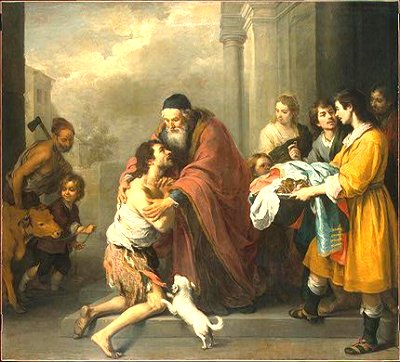Luke 15:11-32
Lesson 141
Lesson 141
Read both the "King James Bible" and the "New Living Translation."
In this lesson:
In the last lesson, we read about lost sheep and coins. Now we meet the lost son.
The "Prodigal Son" is perhaps the most famous of
Jesus' parables and appears exclusively in the Gospel of Luke.
Early Christians referred to Luke as a painter.
The verbal image Luke paints of God's love for lost souls shows why.
This is an excellent passage to read when dispirited by our sins.
In the last lesson, we read about lost sheep and coins. Now we meet the lost son.
The "Prodigal Son" is perhaps the most famous of
Jesus' parables and appears exclusively in the Gospel of Luke.
Early Christians referred to Luke as a painter.
The verbal image Luke paints of God's love for lost souls shows why.
This is an excellent passage to read when dispirited by our sins.
The prodigal son returning to his father.




